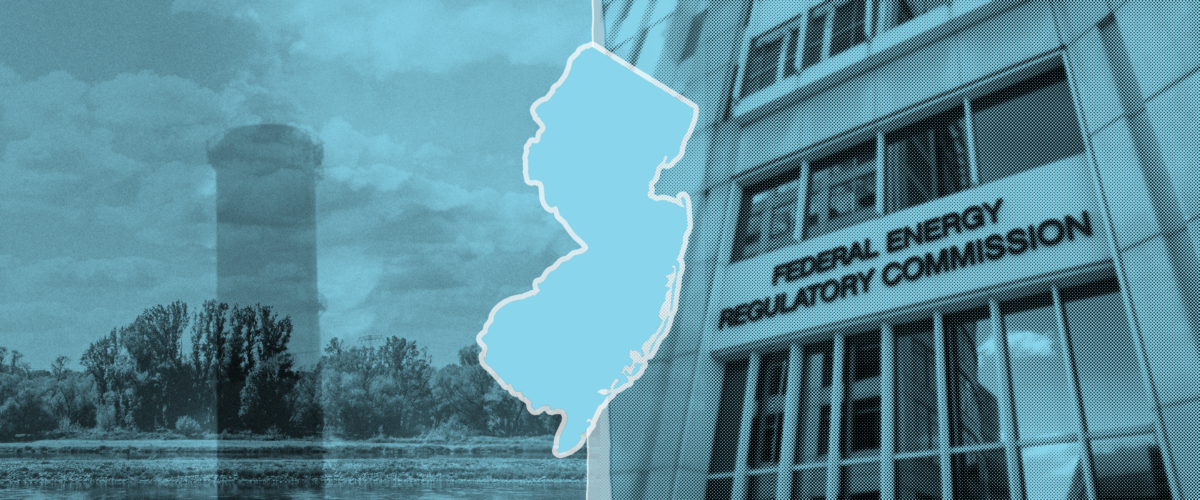We Don’t Need This: Stopping New Gas Infrastructure on the East Coast
Published Aug 3, 2023

A federal agency has approved a massive, totally unnecessary gas expansion project in New Jersey and Pennsylvania — so we’re fighting it in court.
Update (September 11, 2024): Victory! In July, Food & Water Justice and our allies secured a major win in court against the Regional Energy Access Expansion project. The D.C. Circuit Court of Appeals vacated FERC’s approval of REAE and sent the matter back to the agency due to significant flaws. The Court ruled that FERC failed to follow the law when it came to assessing climate impacts and need for the project.
This victory marks important progress in our longstanding efforts to hold FERC accountable for reviewing the true impacts of unnecessary fossil gas projects. The agency must fully consider the consequences for climate, communities, and the environment when making decisions about these projects.
Food & Water Watch is represented by Earthjustice in this case.
In a time of wildfires, flash floods, unbearable temperatures, and other forms of climate chaos, the planet is begging us to stop burning fossil fuels. Yet Transco, a major pipeline company, is pushing to expand and upgrade its Transcontinental Gas Pipe Line. And the Federal Energy Regulatory Commission (FERC) is paving the way.
The proposed project, dubbed the Regional Energy Access Expansion (REAE), would upgrade and add capacity to transport even more fossil gas on the Transco pipeline. This line runs up the Eastern Coast of the United States, carrying gas from the Gulf Coast to New York and New Jersey.
If Transco is allowed to move forward with REAE, the project will bring even more pollution to nearby communities and contribute to the increasingly dire climate crisis.
REAE Will Worsen Air Quality and Harm the Environment
REAE involves upgrading and building compressor stations in New Jersey and Pennsylvania. The compressor station upgrades, and the construction of a whole new compressor station in Gloucester County, NJ, would endanger neighboring communities.
Compressor stations emit nitrogen oxide, fine particulate matter, volatile organic compounds, the carcinogen benzene, and other air pollutants. These air pollutants can create smog and ozone, causing or worsening respiratory illness and other health problems. In Pennsylvania, compressor stations are the leading cause of air pollution from oil and gas production.
Additionally, the project includes three dozen miles of new pipeline in Pennsylvania. The additions would count about 16,000 people as new neighbors, subjecting them to risks of methane leaks and explosions. They would also run through miles of forests and wetlands home to several threatened and endangered plant and animal species.
You can help our fight by calling on New Jersey’s Governor Murphy to reject permits for REAE.
New Jersey Doesn’t Need More Gas — But FERC Approved REAE Anyway
Transco is trying to justify REAE with claims that the region needs more gas. But we know that’s bunk, especially considering that the majority of the gas — 73.5% — is headed to New Jersey, where even state agencies say no new gas is needed.
The New Jersey Board of Public Utilities commissioned a study that found REAE’s proposed capacity is totally unnecessary and that the state has all the gas infrastructure it needs to meet customer demand. A second report came to a similar conclusion.
So why is Transco pushing for the expansion? And why did FERC approve it?
Transco has secured private contracts for the gas and FERC assumed that those contracts showed the project was needed. But those contracts don’t undercut the evidence that the region simply doesn’t need more gas.
FERC didn’t give that evidence enough weight. Instead, it cleared the way for corporate profits at the expense of the climate and communities.
REAE Threatens to Fuel Climate Chaos and Derail Our Livable Future
The National Environmental Policy Act (NEPA) requires FERC to determine whether REAE will have a significant effect on climate change. NEPA also requires FERC to analyze the “upstream” emissions that the project will cause — for example, the emissions from extracting more gas to fill the additional pipeline capacity. And it requires FERC to consider the downstream air pollution that combusting the gas carried by the project will cause.
But FERC entirely failed to do any of those things. The agency also ignored the fact that REAE will lock the region into decades more of fossil gas infrastructure when we should be transitioning to renewables, ASAP.
Compressor stations, which are major components of the REAE project and allow pipelines to maintain or increase their pressure, can last for 30 years. Compressor stations also emit and leak methane — a greenhouse gas with more than 80 times the climate-wrecking impact of carbon dioxide — during routine operations.
If built, REAE will increase New Jersey’s climate pollution by almost 20%, despite state goals to reduce emissions by 50% by 2030. FERC itself estimated that the project would emit more climate pollution than four new coal-fired power plants.
We’re Challenging FERC’s Approval of REAE in Court
FERC rubberstamps nearly every project that comes its way, and REAE is no exception. In January, the agency gave REAE the all-clear, steamrolling over public opposition, and then doubled down on its decision in March.
FERC chose to bury its head in the sand when it approved this project, so we’re challenging that decision.
Food & Water Watch, represented by Earthjustice, has joined allies in asking a federal court to reverse FERC’s approval of this project. To secure a livable future for New Jersey and the rest of the region, we need to stop all new fossil fuel infrastructure, not expand it.
Enjoyed this article?
Sign up for updates.
TO TOP


